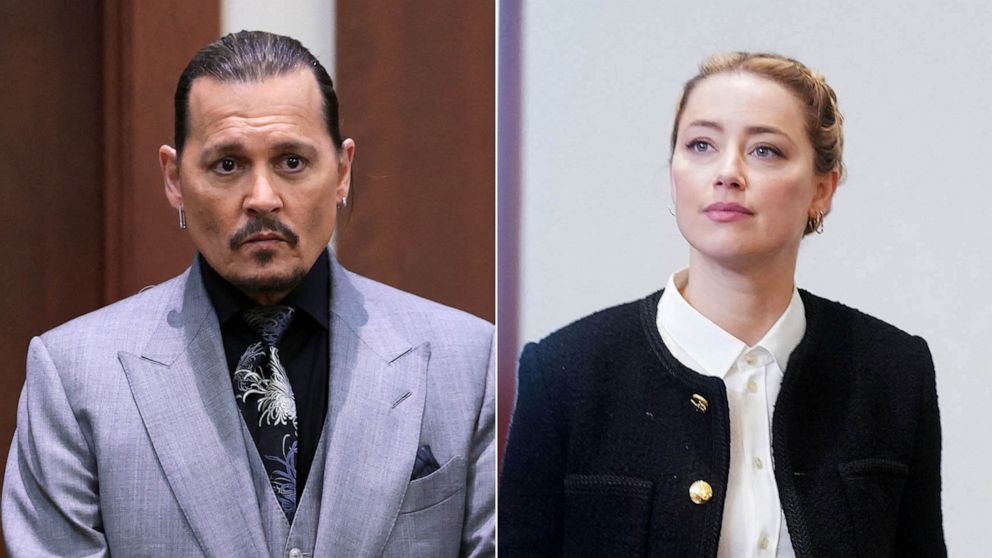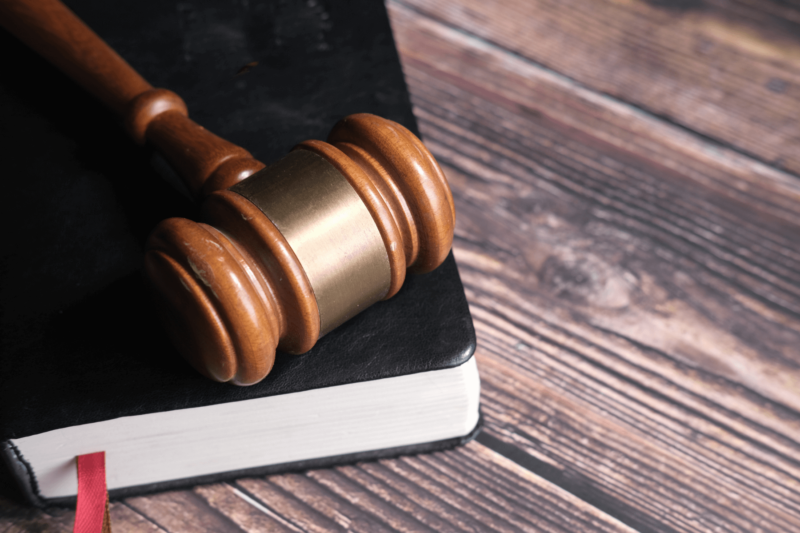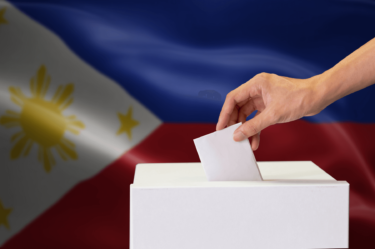Yesterday, the Johnny Depp vs Amber Heard trial was finally handed over to the jury, but not without us hearing each side’s closing arguments first.
As most everyone is probably aware, the case centres on the defamation claims against Johnny regarding the op-ed piece Amber wrote for the Washington Post.
While she doesn’t name him in the article, Johnny claims that anyone reading it would be likely to assume that he is the abuser mentioned. As such, he was dropped from many projects causing damage to his career.
As such, Johnny is suing for $50 million, with his ex-spouse Amber countersuing him for $100 million, claiming she too suffered from the backlash of the Adam Waldman statements that allege she and her friends are perpetuating an abuse hoax against Johnny.

Photo Credit: ABC News | Evelyn Hockstein, Pool/Reuters | Shawn Thew, Pool/Reuters
And just like most everyone else, the trial has been part of my routine for now (thank you Law and Crime), and while I usually don’t follow these kinds of issues (I find court proceedings very stressful to watch), I simply can’t look away!
It also gave my mind a break from thinking about local political issues.
Usually, public sentiments go in favour of the accused. And with the #metoo movement still very much alive on everyone’s mind, you would think that more sympathy would go towards Amber.
That’s actually what made me curious about this case in the first place.
Are people just siding with Johnny Depp because he is the more popular one? Is everyone having trouble grasping the fact that their beloved character, Willy Wonka or Captain Jack Sparrow could be associated with any kind of abuse?
We’ll, the more I learned about the case, the more I think this time, the public has valid reasons why they trust Johnny more.
And so as a writer, the closing arguments are actually something I’ve been looking forward to hearing to learn what strategy Johnny and Amber’s lawyers take to win the jury over.
How do they balance the need to tap into the jury’s emotions while staying factual and evidence-based on their arguments?
How do they go about the sensitive topic of domestic abuse without undermining the plights of actual victims? In the case of Amber’s attorneys, how do they best communicate the reality of the abuse in this specific case?
What kinds of wordplay would be used and how powerful will they be when presented on each one’s turn?
Closing Arguments: Johnny’s Lawyers
Camille Vasquez, America’s darling lawyer right now, delivers a great closing, and Benjamin Chew follows with a more straightforward approach meant to guide the jury in answering the questions laid out for them by the judge.
I liked how Camille acknowledged that abuse shouldn’t be taken lightly, but it’s not Amber’s story.
What Ms. Heard testified to in this courtroom is the story of far too many women, but the overwhelming evidence weight of that evidence shows that it’s not her story — it’s not Ms. Heard’s story.
It was an act of profound cruelty, not just to Mr. Depp, but to true survivors of domestic abuse for Ms. Heard to hold herself out as a public figure representing domestic abuse.
Camille Vasquez
It’s also so strategic how she stacked all the witnesses (and later named the unpaid ones in her rebuttal) against Amber, “No one showed up to support Amber Heard, except her sister.”
And how she made it historical by pointing to the fact that it’s exactly six years to the day when Amber filed the temporary restraining order against Johnny after alerting TMZ of what’s about to happen.
I kinda expected it to be more emotional like how see in the movies those lawyers who rehearse their speech with that moving the last sentence meant to stir powerful emotions in the jury. I guess I expected them to build on how Johnny’s reputation is ruined heartlessly by Amber through her article. Nonetheless, I think their approach worked.
Closing Arguments: Amber’s Lawyers
On the other hand, I think Benjamin Rottenborn delivered a powerful opening to his closing arguments.
It makes you think: What does it take for us, as a society to believe victims of abuse?
If you didn’t take pictures it didn’t happen; if you did take pictures, they’re fake.
If you didn’t tell your friends you’re lying;
if you did tell your friends they’re part of the hoax.If you didn’t seek medical treatment, you
weren’t injured; if you did seek medical treatment you’re crazy.If you do everything that you can to help your spouse, the person that you love to rid himself of the crushing drug and alcohol abuse that spins him into an abusive rage-filled monster, you’re a nag.
And if you finally decide that enough is enough, you’ve had enough of the fear enough of the pain and you have to leave to save yourself, you’re a gold digger.
That is the message that Mr. Depp is asking you to send…
Benjamin Rottenborn
But after listening for a while, you kinda tune out because it feels more like he’s dictating to the jury how they should decide based on how their arguments fit into the guidelines.
I know it’s his job and the lawyers from Johnny’s side did their own version of that, but it feels less forced than his.
It also feels like invoking the First Amendment isn’t that at all helpful, as there are questions handed out to the jury that asks them to look not just at the truthfulness of the statements, but at damages and malice as well.
Meanwhile, listening to Elaine Bredehoft felt like listening to a (for lack of a better description) gossip recounting events. I don’t know if she really structured her arguments that way, but it didn’t feel organised or built up to a point.
From the filing of lawsuits, the Waldman statements, and the faeces on the bed, it was like she was casually telling a story that you’ll feel you’re still undecided whether to believe or not.
My takeaway: Words Matter
In the words of Camille Vasquez, “Words matter.”
There is truth out there, and words can be used to bring it to light. I hope the jury is able to sift through all of these (must be tough to be in their place right now) and bring about a fair verdict.
I hope all these send out a message that words shouldn’t be used so recklessly, whether it be in a public platform or an intimate setting.






No Comment